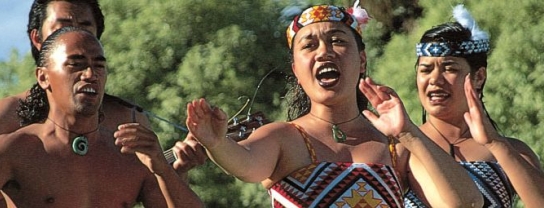New Zealand: The Committee expresses concern for indigenous rights and gender equality
Published on 31 Mar 2016, 12:56 PM
ICCPR Review by the Human Rights Committee - March 2016

The Sixth Periodic Report of New Zealand was reviewed by the Human Rights Committee on the 14th and 15th March 2016. The delegation came well-prepared and were able to respond effectively to the Committee’s questions. A variety of topics were discussed, in particular the rights of indigenous peoples, gender-based discrimination and the right to privacy. Other issues included the provision of juvenile prison facilities, maritime exploitation, the New Zealand Bill of Rights Act (BORA), the use of tasers by police, family violence, child abuse, human trafficking and cancellation of identity documents.
"The State party should develop and implement a comprehensive national strategy to combat racism, racial discrimination, xenophobia and other forms of intolerance"
-
Indigenous rights
Equality for indigenous groups was highlighted by the Committee as a general point of concern. The representation of Maoris in the criminal system was marked out as a key example, as they constitute half of the country’s total prison population but only 15% of the population in general. Committee members requested an explanation for this disproportionality, and measures taken by the State Party to tackle the issue. The delegation referred to the State’s Turning of the Tide police programme, the objective of which is to work with the Maori and Rangatahi to reduce overrepresentation of Maoris in the criminal system, aiming for a 20% reduction by 2018.
Other concerns raised by the Committee on the issue of indigenous groups included court claims, decision-making, employment, education and land rights. The delegation responded that the Treaty of Waitangi has served as an important point for redress of Maori historical claims, which the Waitangi Tribunal is currently processing. The delegation also reported a rise in Maori political representation, with approximately 80% of councils including some form of Maori engagement. Efforts to increase access to employment and education for Maoris and Pacific Islanders is represented by the Pacific Economic Strategy, and the delegation added that the number of Maori and Pacific Islanders achieving the minimum standard of education represented the fasted-growing statistics within the education system since 2008. The 2011 Takutai Moana Act also ensured a common coastal area, thus recognising traditional Maori rights in these areas.
Gender equality
The professional representation of women was also raised by the Committee, and reference was made to the link between an ongoing gender pay gap and a gender imbalance across various sectors. The delegation acknowledged shortcomings in this area, and reported steps taken to advance the rate of women entering less-traditional occupations. Whilst female representation had improved in the public sector (such as on government boards) and students in graduate study reflect a gender balance, efforts were still being made to diversify female engagement towards those subject areas which are male-dominated, such as IT and construction.
Violence against women
Violence against women and girls was also raised as a serious concern, and the Committee referred to the infamous case of the ‘Roast Busters’ to draw attention to the issue. The delegation admitted that this case emphasised the need to educate young girls on the meaning of consent and to address the prevalence of victim-shaming in society. The Committee expressed regret that the victims had not received support earlier, to which the delegation responded that the girls had access to both the Specialised Claim Service and to the Victims Support Service. Regarding the prevalence of family violence in New Zealand noted by the Committee, the delegation responded by stating that $1.4 billion p.a. was dedicated by the government to tackling this issue, with a particular focus on prevention.
The Concluding Observations for which the State should provide information on the implementation within one year, concern:
- Domestic and Gender-Based Violence
- Child Abuse
- Marine and Coastal Area (Takutai Moana) Act of 2011
The next (seventh) periodic report of New Zealand should be submitted by 31 March 2023.
Photo credit: http://www.fourcorners.co.nz/new-zealand/maori-culture/


